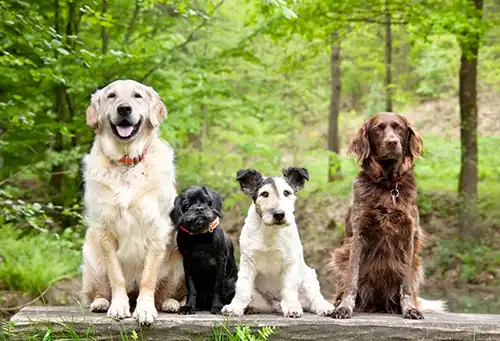Have you noticed your feline friend slowing down lately? Cats are cute and lovable at all stages of their lives, but they somehow become extra charming as seniors. Fluffy may become super cuddly. She may also be more interested in curling up on your lap than in batting catnip mice down the hall in the middle of the night. And while kitties are known for being independent pets that are easy to care for, your furry friend will need some extra TLC as she enters her golden years. A local Marin County, CA veterinarian offers some advice on this below.
When Do Cats Become Seniors?
There’s a bit of confusion about the comparison between cat years and human years. You may have heard that old adage stating that every one year of human life equals seven years of kitty life. That actually isn’t right. For instance, that crucial first year of Fluffy’s life is roughly equivalent to about 10-12 human years. The second would get your furry pal up to about the equal of 24 human years. After that, the comparisons vary.
That said, Fluffy’s official retirement age is ten, according to the American Association of Feline Practitioners. However, other resources put that age at nine. Some even consider kitties seniors at age seven! There’s a reason for those variations. Generally speaking, a seven-year-old cat is roughly comparable to a 45-year-old human. That’s about middle age for people. So while a seven-year-old cat may still act like a kitten, it makes sense that your kitty would start to benefit from more frequent veterinary appointments around then.
What Common Health Issues Do Older Cats Have?
Cats in their golden years are at elevated risk of developing several health problems. One of these include cancer, diabetes, arthritis, hyperthyroidism, vision problems, and dental issues, to name a few.
In between veterinary appointments, you’ll want to keep an eye out for signs of illness. Keep in mind that cats tend to be naturally secretive about this. Fluffy may try to mask her symptoms until she is very ill!
Here are some things to look for:
- Changes In Appetite
- Increased/Decreased Thirst
- Increased/Decreased Urination
- Vomiting
- Diarrhea
- Respiratory Issues
- Fever
- Lethargy
- Stumbling
- Withdrawal
- Uncharacteristic Behavior Or Vocalizations
- Discharge
- Limping
- Lesions, Lumps, Bumps
- Skin Irritation
- Hair Loss
It’s worth noting that unkempt fur is often listed as a sign of sickness for cats. This can definitely be true. However, it’s not unusual for older kitties to look a bit disheveled. For one thing, they often have trouble grooming themselves. Senior cats can be quite stiff and sore, which can make all that bending and stretching a bit tough. Plus, older kitties’ skin often produces a lot of oil.
That said, it’s always best to err on the side of caution. Contact your Marin County, CA veterinarians right away if you notice anything unusual.
How Do I Care For My Older Cat?
For the most part, your furry pal will need the same things as any other kitty: good food, fresh water, a clean litterbox, and, of course, regular veterinary care. However, you’ll want to start making small adjustments.
Let’s start with diet. Your vet will be able to advise you about when it’s time to make the change over to a senior-formula food. Fluffy may also need to eat more or less food, or perhaps switch from kibble to canned food, or vice versa.
As far as water, make sure your pet always has fresh water. You’ll want to start monitoring her water intake. One way to do that is to fill her bowls at the same time each day. Of course, if you have a large house, you may want to set out extra water stations, especially in summer.
We’ve touched on litterboxes already, so we’ll move on to veterinary care. Your kitty may need to come in more often as she grows older. Just like people, cats become more susceptible to certain health issues as they grow older. Ask your Marin County, CA vet to recommend an appointment schedule.
How Do I Make My Home Comfortable For My Senior Cat?
Little touches can really go a long way when it comes to caring for an aging cat.
Here are some of the things you can do for Fluffy:
Get Nightlights
Just like people, cats sometimes experience issues with their vision as they get older. Fluffy may have a hard time finding her way around a dark house at night. Set out little nightlights for her.
Pet Ramps
Your pet won’t be able to jump or climb as easily as she once did. She may also become a bit clumsy, which could make her prone to slips and falls. Set out pet ramps or stairs for her so she can reach her favorite spots on beds and couches. You can use things like chests and footstools.
A Room With A View
It’s always safer for kitties to remain indoors. However, our feline pals do need entertainment and stimulation. Birdwatching is a favorite form of entertainment for many kitties. Fluffy can spend hours napping, sunbathing, and watching birds and squirrels. Give your pet a comfy window seat with a good view. Make sure it’s easy for her to reach! An attractive option is to use a storage ottoman or bench. Put a soft blanket on it, something that matches your décor.
Offer Beds
Senior cats are napping ninjas, capable of napping as much as 20 hours a day. It took Fluffy years of practice to be able to sleep that much. Make sure your sleepy pet has lots of beds and napping spots to choose from!
Provide Your Aging Cat With Senior-Friendly Facilities
Your furry friend may have a hard time getting in and out of a litterbox with high walls. Get one that was made just for seniors. These are often easier for aging cats to get in and out of. We would also recommend putting litterboxes on every floor of your house. You may also want to try different litters. Some can help detect hormonal changes that may indicate medical problems. Ask your vet for specific advice.
How Do I Keep An Older Cat Happy?
Fluffy will spend most of her time sleeping, so seeing to everything we’ve mentioned here will go a long way. Aside from that, just pay lots of attention to your furry pal. Talk to her, play with her, and let her snuggle up on your lap.
Senior cats also need entertainment and stimulation. Playing is very important here. Your pet may not be as frisky as she once was, but she’ll still enjoy letting her inner lion out every now and then. This will also help your cat stay physically fit.
Just like people, older cats can be susceptible to cognitive decline. Playing can help with this as well. Kitties have to focus on that little red dot to land those pounces right! Even leaving a radio on can help provide stimulation and enrichment.
Of course, Fluffy will never outgrow her love of boxes and sunbeams, and she’ll enjoy things like cat grass.
Last but certainly not least, just make sure that Fluffy feels loved and safe. Purrs from senior cats are truly precious!
Do you have questions about senior cat care? Please feel free to reach out to us, your Marin County, CA veterinary clinic, anytime. We are always happy to help!







!Social Media Icons